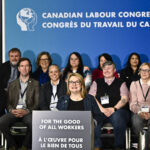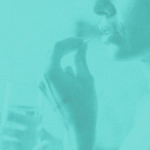Labour Views: Rethinking Canada 150
Rethinking Canada 150: Our home on native land
July 1, 2017 marked the 150th anniversary of Canada’s confederation. Many consider July 1, 1867, to be the official beginning of Canada as a country and Canada’s 150th anniversary as an event to be celebrated. Across Canada, all levels of government and many social and cultural groups organized joyous celebrations. It is a time to take pride in the many acts, achievements, discoveries and decisions that have made Canada the country that it is today.
This 150th anniversary is also a time to reflect back on a history that has not always been so bright, of a nation that was created in conflict, through colonization and the oppression of individuals and communities. The story about the beginnings of Canada ignores the long history of Indigenous peoples on their lands, and minimizes or ignores entirely how “Canada” takes place through ongoing, violent processes of occupation and displacement – processes that the Truth and Reconciliation Commission has labelled cultural genocide.
Settlers in Canada need to be sensitive to the following point of view expressed by Art Manuel of the Secwepemc Nation who passed into the spirit world on January 11, 2017 at the age of 65: “I do not wish to celebrate Canada stealing our land. That is what Canadians will be celebrating on July 1, the theft of 99.8% of our land, leaving us on reserves that make up only 0.2% of the territories given us by the Creator.”
In the spirit of Arthur Manuel, the “Unsettling Canada 150” alliance called for July 1 to be a National Day of Action. This day of action was to celebrate indigenous and human rights to self-determination, their lands, territories, and resources. It was also to educate Canadians about how their constitutional framework, first established 150 years ago in the British North America Act (1867), illegally confiscated indigenous lands, territories, and resources, spawned the post-confederation Indian Act (the most racist piece of legislation in Canada) and attempted to write Indigenous jurisdiction, and Indigenous Peoples, out of existence.
The “UNsettling Canada 150” call includes the following three demands:
- A new open truly Nation-to-Nation recognition process that begins by fully recognizing Indigenous land rights and their decision-making power throughout their territories.
- The full implementation of the Truth and Reconciliation Calls for Action, including rejecting the colonial doctrines of discovery and recognizing Indigenous self-determination.
- The full implementation of the United Nations Declaration of the Rights of Indigenous Peoples on the ground.
Members of the progressive community are calling on the Trudeau government to recognize a nation-to-nation relationship with First Nations, to fully implement the Truth and Reconciliation Commission recommendations, and to fully implement the UN Declaration on the Rights of Indigenous Peoples (and explicitly its key principle of the right to free, prior and informed consent).
Honorary Chair of the Council of Canadians, Maude Barlow stated: “However, as many celebrate with fireworks, parties and music, it is crucial to remember that not all have shared in these riches equally. For First Nations people, this is not a time for celebration, but a reminder and memory of 150 years of colonization, displacement, isolation, land and resources theft, residential schools, the “sixties scoop,” and violence. Calling 2017 Canada’s 150th “birthday” is to ignore that Indigenous peoples have been on this land for millennia and that, for them, 1867 signaled the attempted end of their culture.”
Another Canada is possible! Canada Day may be over, but Canada 150 isn’t.
Lorraine Hewlett







